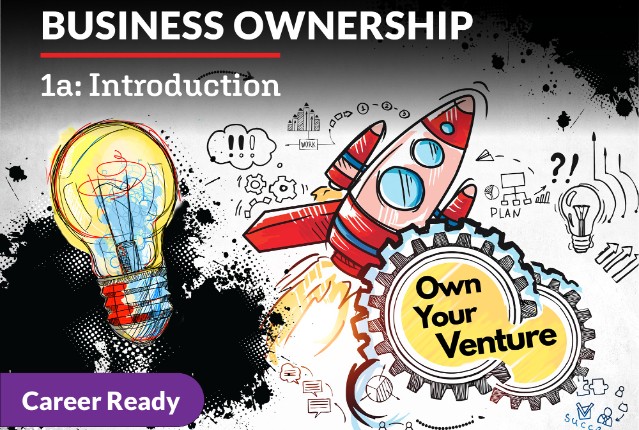
Business Ownership 1a: Introduction
Do you dream of a future where you can have creative freedom, working in an industry you love, where you can get up every morning excited about the day will bring? In this course, you’ll learn the skills you’ll need in order to take your dream and transform it into a successful business. You’ll explore foundations like generating ideas to qualifying opportunities, analyzing the market, and identifying skills for successful deployment. You’ll learn to keep your business rolling and growing through effective workplace leadership and training while incorporating technological innovations to keep your business competitive. Are you ready to turn your dreams into reality? Let’s get goaling!
Review course outlineAccess for a year
USD 299.00*
* Choose more courses to get a discount






